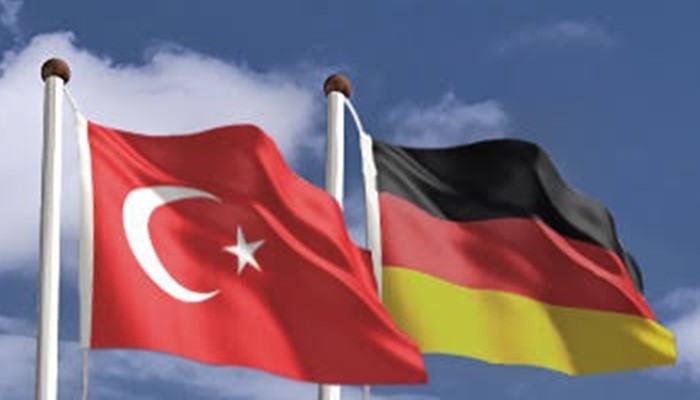Despite verbal assurances offered by the Turkish government, Germany has begun to consider economic sanctions against Turkey, Deutsche Welle reported on Sunday.
According to the report, the Turkish government’s recent statements including verbal guarantees for German investors in Turkey are seen as insufficient by Berlin. The German government is waiting for Turkey to take concrete steps in democracy and the rule of law.
Berlin has asked Turkey to stop using arrested German citizens including journalists and human right activists as a political card and to end political accusations against Germany by Turkish politicians.
Germany, which on July 10 announced a change in its Turkey policy and some economic measures, has been evaluating its options, especially those that can put political pressure on President Recep Tayyip Erdoğan, and their possible political, economic and legal influence, wrote Deutsche Welle, based on diplomatic sources.
Turkey’s Economy Minister Nihat Zeybekçi said on Saturday that Turkey’s submission to Interpol of a list of around 700 German companies suspected of funding terrorism was a mistake and assured that such mistake will never happen again.
Speaking during a meeting at the Denizli Governor’s Office on Saturday, Zeybekçi said the mistake occurred due to a breakdown in communication in the relevant office.
“Unfortunately, it is a situation that occurred due to a breakdown in communication in the relevant office. It is irresponsible to reflect it on to other countries via Germany and Interpol. Let’s say it was a momentary gap. Necessary steps and measures were taken against it. Such a mistake will never, ever, happen again. In this context, we don’t agree with the discourse of the German foreign and economy ministers,” he said.
German newspaper Die Zeit reported last week that Turkey had handed Germany a list of 68 companies and individuals suspected of links to terrorism due to alleged links to the Gülen movement, which is accused by Turkey of being behind a failed coup last year.
A spokesman for the German interior ministry said his Turkish counterpart had contacted him about the allegations leveled against nearly 700 German firms including industry giants Daimler and BASF.
The spokesman, Tobias Plate, said Berlin had been told that the list of companies with Turkish operations being investigated for “financing of terrorism” lodged with Interpol in May had been withdrawn, saying the suspicion had been based on a “communications problem.”
Turkey’s Justice Minister Bekir Bozdağ also said on Wednesday that Turkey had only asked Interpol for information about the export and import of 140 Turkish companies that are allegedly affiliated with the Gülen movement.
On Thursday, Turkish Prime Minister Binali Yıldırım met with representatives of 19 German companies in Turkey and said: “It is very important for us that you are not harmed in any way and are not part of this tension due to what has happened. I am saying this openly; we do not see you as German firms. We consider you to be the firms of this country.”
Turkish President Tayyip Erdoğan recently threatened Germany, which is Turkey’s main trading partner and which sent the biggest number of tourists to Turkey last year, with paying a high price in return for an economic embargo and said they would lose.
Tensions have been running high between Turkey and Germany since Turkey’s crackdown on opposition groups, including journalists and human rights defenders, after a botched coup attempt on July 15, 2016.
More than 150,000 people have been sacked or suspended from jobs in Turkey’s civil service, military and private sector and more than 50,000 have been jailed on coup charges.
President Erdoğan is believed to be detaining German nationals to force the deportation of Turkish asylum seekers, who Erdoğan accuses of having mounted a botched coup attempt on July 15, 2016, from Germany.


